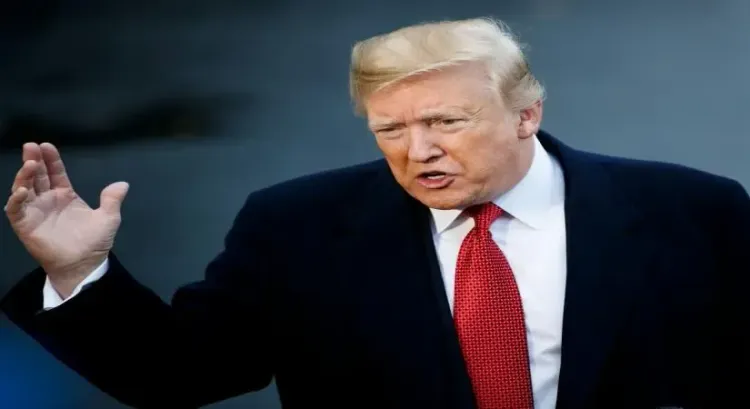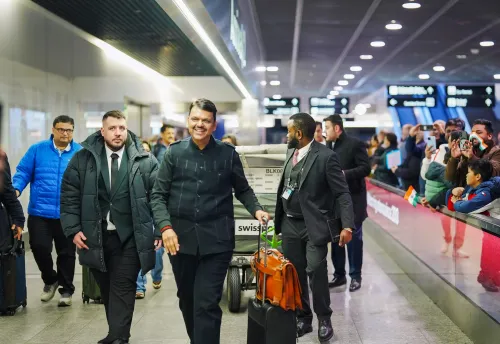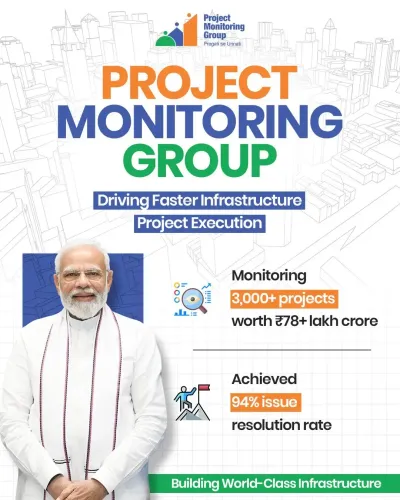Is Trump Really Going to 'Significantly' Raise Tariffs on India for Buying Russian Oil?

Synopsis
Key Takeaways
- Trump threatens tariffs on India for Russian oil purchases.
- India sources 40% of its oil from Russia amid tensions.
- Escalating geopolitical dynamics could impact global markets.
- India maintains its stance on energy independence.
- Potential retaliation from Russia may complicate matters further.
New York, Aug 4 (NationPress) US President Donald Trump has issued a new warning on Monday to "significantly" hike tariffs on India as a consequence for what he claims is the nation selling imported Russian oil on the open market for "substantial profits".
He did not specify the increased tariff above the 25 percent he announced last Friday.
Trump is visibly frustrated with Russian President Vladimir Putin’s unwillingness to cease hostilities in Ukraine, and he is redirecting his anger towards India to exert pressure on Moscow.
He posted on Truth Social: "India is not only purchasing enormous quantities of Russian oil; they are also selling much of it on the open market for significant profits."
"They are indifferent to the loss of life in Ukraine caused by the Russian war machine. Therefore, I will be significantly increasing the tariff imposed on India by the USA," he declared.
Initially, Trump indicated that the penalty, termed secondary tariffs, would be a whopping 100 percent for all buyers of Russian oil.
He has postponed the deadline for Russia to agree to a ceasefire with Ukraine until the end of this week.
Reports over the weekend cited unnamed Indian officials stating that India would persist in purchasing Russian oil, igniting further outrage from Trump.
While he targeted India, he didn’t mention whether China, which also imports a significant amount of Russian oil, would face similar repercussions.
The US and China are currently in discussions for a trade agreement, and imposing tariff penalties would complicate these negotiations.
According to the International Energy Agency, India has sourced nearly 40 percent of its oil imports from Russia, with 70 percent of Moscow's oil exports directed to India.
Before the onset of the Ukraine conflict, India had only acquired around 0.2 percent of its oil needs from Russia, but this figure surged following the imposition of embargoes on Russian oil while maintaining prices below the European Union's cap of $60 per barrel.
Some of the refined products are reportedly being exported by Indian refineries.
On Friday, amid reports of declining oil imports from Russia, Trump remarked that it would be a "positive development" if true.
He informed reporters: "I understand that India is ceasing to purchase oil from Russia. That’s what I’ve heard. I’m not sure if that’s accurate, but it would be a good step. We will see what occurs."
Previously, he expressed on Truth Social, "I don’t care what India does with Russia. They can ruin their economies together, for all I care."
This remark escalated a war of words with former Russian President Dmitri Medvedev, leading Trump to reposition two nuclear submarines to strategic locations.
Russia may retaliate against these punitive tariffs by cutting off the Caspian Pipeline Consortium line, which transports Kazakh oil through Russia to Western Europe.
There is a risk of oil prices surging if India, the world’s third-largest oil importer, is compelled to source oil from the global market, which could also impact the US.
Meanwhile, Indian government officials have emphasized that there is no halt to oil imports from Russia. One official stated, "India's energy purchases are driven by national interests and market dynamics. We have no reports of Indian oil companies suspending Russian imports."
MEA spokesperson Randhir Jaiswal stated last week, "You are aware of our overall strategy regarding energy sourcing; we assess what is available in the market and the prevailing global circumstances. We do not have specifics on that."
India sources its oil based on global market options to satisfy its energy needs.
"Our relationships with any country are based on their own merits and should not be viewed through the lens of a third country. Our relationship with Russia is steady and built over time," said the MEA spokesperson.










